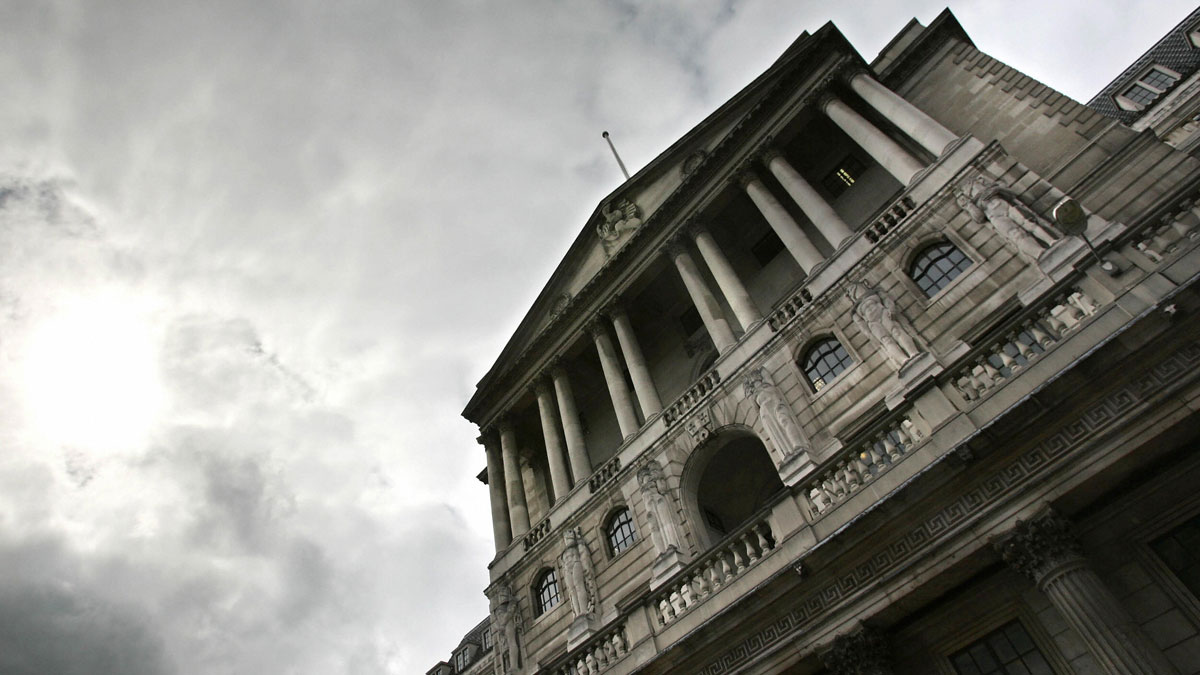Was the Bank of England involved in the Libor rigging scandal?
New evidence could have had an impact on criminal trials, says one accused banker

A free daily email with the biggest news stories of the day – and the best features from TheWeek.com
You are now subscribed
Your newsletter sign-up was successful
A recording made public by the BBC's Panorama programme implicates the Bank of England in the Libor rigging scandal.
What has happened?
The BBC claims it has uncovered a recording of a conversation from October 2008 between a "senior manager at Barclays, Mark Dearlove", and Libor submitter Peter Johnson.
The Week
Escape your echo chamber. Get the facts behind the news, plus analysis from multiple perspectives.

Sign up for The Week's Free Newsletters
From our morning news briefing to a weekly Good News Newsletter, get the best of The Week delivered directly to your inbox.
From our morning news briefing to a weekly Good News Newsletter, get the best of The Week delivered directly to your inbox.
In it, Dearlove instructs Johnson to lower his Libor rates, despite Johnson saying doing so would "mean breaking the rules for setting Libor, which required him to put in rates based only on the cost of borrowing cash", says the broadcaster.
Dearlove says is also "reluctant", but that he has "had some very serious pressure from the UK government and the Bank of England about pushing our Libors lower".
What were the rules at the time?
In a statement, the Bank of England said that "Libor and other global benchmarks were not regulated in the UK or elsewhere" at the time.
A free daily email with the biggest news stories of the day – and the best features from TheWeek.com
However, while that is true, there were still voluntary rules in place.
Banks each had one submitter who was to set its daily rate based on the real cost at which the bank was able to borrow from its peers.
The rate had to be a realistic reflection of the one at which funding could be obtained. An average of 16 banks' rates was used to set the Libor each day.
Why is Libor important?
Libor is used as the reference rate on billions of pounds worth of mortgages, loans and other market transactions every day.
Banks have been fined £6bn for "lowballing" – manipulating – rates in the past, which in most cases they did to benefit their own trading positions in response to requests from traders within the bank.
Why is the recording important?
If it is authentic- and if Dearlove was being honest -the recording would add to evidence that the bank knew of Libor long before the scandal went public - and even deliberately encouraged banks to lowball their submissions.
According to the BBC, the tape comes from a period when borrowing costs were rising, piling pressure on banks and the financial system. Lowballing rates would have been a way to keep a lid on those costs.
But there is more: Johnson was jailed last year after admitting rigging rates in response to requests from his own traders. Two traders who made requests were also found guilty.
Another trader who was accused, but who was one of two on whom the jury could not reach a verdict, told the BBC the recording could "probably" have made a difference in the trials.
Will convictions be overturned?
Probably not. The few traders who have been convicted were prosecuted on the grounds they manipulated Libor to benefit their own trading positions.
So, while it would be hugely significant if the Bank of England knew about the issues and encouraged it, there is more likely to be punishment or censure for any bank officials found to have been involved than a reversal of sentences already handed out.
However, some of those convicted will no doubt feel this vindicates the argument that they were not doing anything out of the ordinary and could appeal accordingly.
The first banker to be convicted over Libor rigging, Tom Hayes, who in 2015 was sentenced to 11 years in prison, told the Daily Telegraph there should now be public inquiry.
"The involvement of the Bank of England in lowballing Libor was a key plank of my defence," he said.
Will there be consequences?
The Serious Fraud Office said it would follow the evidence "as high as it goes and aim to charge the most senior people wherever there is a realistic prospect of conviction".
One former Bank of England executive could also face further scrutiny: Paul Tucker, the former deputy governor, told the Treasury select committee in 2012 he had "only recently become aware of lowballing". The recording also contradicts the evidence from former Barclays chief executive Bob Diamond.
Committee member Chris Philp MP told the BBC "it sounds to me" as if Diamond and Tucker "were misleading parliament".
He added: "That is a contempt of parliament. It's a very serious matter and I think we need to urgently summon those individuals back before parliament."
-
 Quentin Deranque: a student’s death energizes the French far right
Quentin Deranque: a student’s death energizes the French far rightIN THE SPOTLIGHT Reactions to the violent killing of an ultra-conservative activist offer a glimpse at the culture wars roiling France ahead of next year’s elections.
-
 Secured vs. unsecured loans: how do they differ and which is better?
Secured vs. unsecured loans: how do they differ and which is better?the explainer They are distinguished by the level of risk and the inclusion of collateral
-
 ‘States that set ambitious climate targets are already feeling the tension’
‘States that set ambitious climate targets are already feeling the tension’Instant Opinion Opinion, comment and editorials of the day